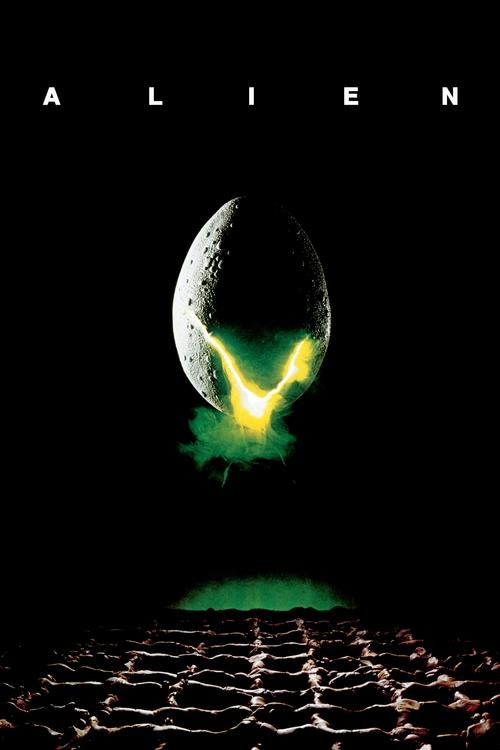
Title: Alien
Year: 1979
Director: Ridley Scott
Writer: Dan O'Bannon
Cast: Tom Skerritt (Dallas),
Sigourney Weaver (Ripley),
Veronica Cartwright (Lambert),
Harry Dean Stanton (Brett),
John Hurt (Kane),
Runtime: 117 min.
Synopsis: During its return to the earth, commercial spaceship Nostromo intercepts a distress signal from a distant planet. When a three-member team of the crew discovers a chamber containing thousands of eggs on the planet, a creature inside one of the eggs attacks an explorer. The entire crew is unaware of the impending nightmare set to descend upon them when the alien parasite planted inside its unfortunate host is birthed.
Rating: 8.164/10
The Primal Scream of Alien: A Masterpiece of Dread in the Void
/10
Posted on June 7, 2025
Ridley Scott’s Alien (1979) is a cinematic predator, a film that stalks its audience with surgical precision, blending science fiction and horror into a singular, suffocating experience. Set aboard the Nostromo, a grimy space freighter, it’s less a story than a visceral descent into primal fear, where the unknown isn’t just a threat it’s a violation. Scott, with his painterly eye and unrelenting tension, crafts a work that’s as much about silence as it is about screams, a haunting meditation on survival and the indifferent cruelty of the cosmos.
Sigourney Weaver’s Ellen Ripley is the film’s beating heart, a role that redefined the action hero. Her performance is raw and restrained, evolving from pragmatic warrant officer to fierce survivor without a hint of bravado. Weaver grounds Ripley in quiet competence, making her final stand feel earned, not scripted. The ensemble Tom Skerritt’s stoic Dallas, Ian Holm’s unnervingly detached Ash, Yaphet Kotto’s gruff Parker creates a lived-in crew dynamic, their blue-collar banter clashing with the sterile terror. Yet, some characters, like Veronica Cartwright’s Lambert, border on shrill, their panic occasionally grating rather than sympathetic.
Scott’s direction is a masterclass in atmosphere. Every frame drips with dread, from the Nostromo’s claustrophobic corridors to the alien planet’s skeletal ruins. Cinematographer Derek Vanlint uses shadow and smoke to choke the light, turning the ship into a labyrinth of menace. H.R. Giger’s biomechanical xenomorph, a nightmarish fusion of insect and machine, is revealed sparingly, its horror amplified by absence. The practical effects chestbursters, facehuggers remain visceral, though some dated model shots briefly break the spell.
Dan O’Bannon’s screenplay, sharpened by Walter Hill, is lean and merciless, its dialogue functional yet evocative (“The Company” looms like a ghost). The film’s slow-burn first act builds character and tension, but its middle can feel repetitive, cycling through similar scares. Jerry Goldsmith’s score, a sparse blend of dissonant strings and eerie flutes, is a sonic predator, though Scott’s minimal use of it heightens the silence’s terror. Where Alien falters is in its occasional reliance on horror tropes characters splitting up, ignoring protocol but these are minor sins in a film that transcends them.
The film’s genius lies in its subtext: the xenomorph as a violation of body and autonomy, the crew as expendable cogs in a corporate machine. It’s a feminist allegory without preaching, a survival tale without heroes. Alien isn’t flawless its pacing dips, its archetypes creak but it’s a primal scream that echoes across decades, a reminder that in space, no one can hear you, but everyone feels your fear.
0
0
